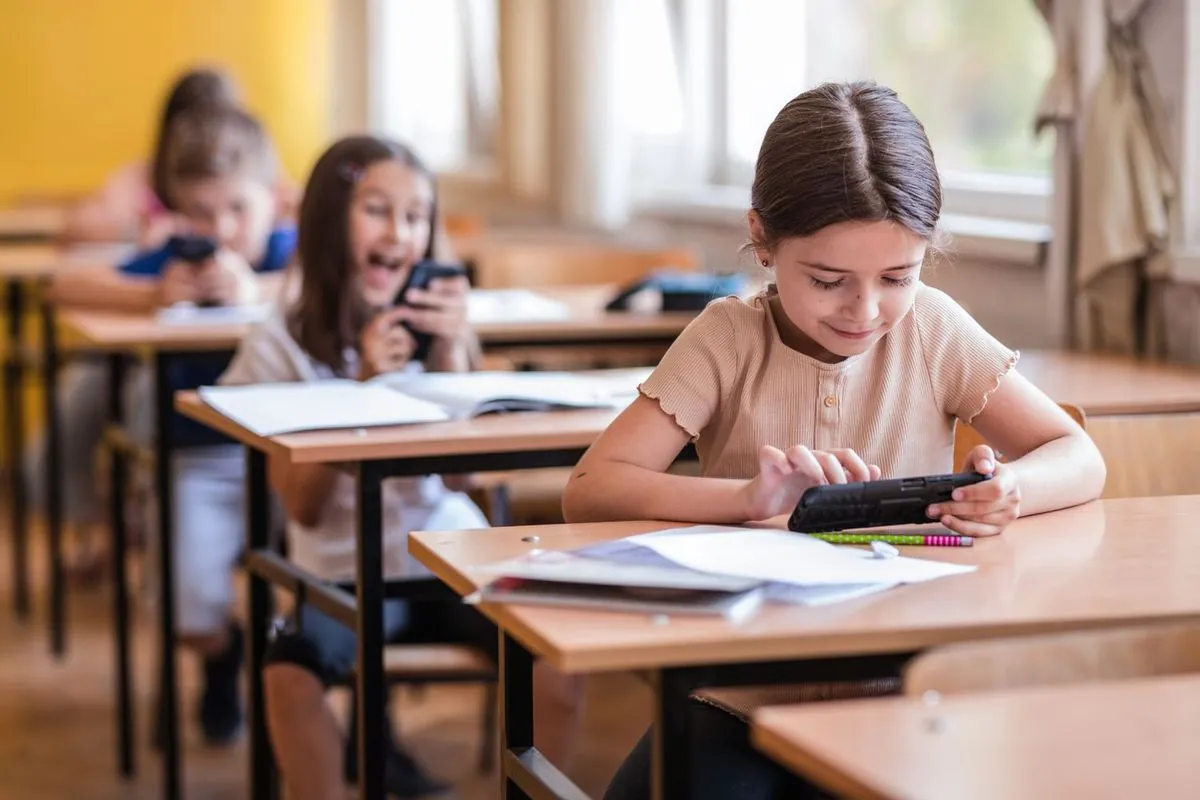Schools Tighten Cellphone Restrictions as Concerns Over Student Well-being Grow
A growing number of US schools are implementing strict cellphone policies, citing concerns about student distraction and mental health. The trend marks a shift from previous, more lenient approaches to device use in classrooms.

In a significant shift from previous policies, an increasing number of schools across the United States are implementing stringent restrictions on cellphone use. This trend, driven by mounting evidence of the detrimental effects of constant internet connectivity on teenagers, is reshaping the educational landscape.
As of August 2024, several major school districts and states have enacted policies limiting or outright banning cellphone use during school hours. Los Angeles Unified School District, the second-largest in the country, voted to ban cellphone use in June 2024. Similarly, Clark County, Nevada, plans to implement a policy requiring middle and high school students to store their phones in pouches during the school day starting this fall.
States such as Indiana, Louisiana, South Carolina, and Florida have passed legislation restricting cellphone access during school hours. Governors in at least three other states, including Virginia, have called for similar measures. This push for phone-free learning environments is supported by research suggesting potential benefits.
A study published in 2022 found that removing phones from classrooms could enhance learning outcomes. Melissa Huey, an assistant professor of psychology at New York Tech, noted, "We found the people who did not have their phones had lower levels of anxiety, high levels of course comprehension and high levels of mindfulness."

The motivation behind these policies stems from concerns about student distraction, learning impediments, and mental health issues. Alberto M. Carvalho, superintendent of the Los Angeles Unified School District, emphasized, "Smartphones and the content students access relentlessly 24/7 are distracting kids from learning and eroding their mental health."
Teachers have been vocal supporters of these restrictions. A fall 2023 Pew Research Center survey revealed that 72% of high school teachers reported cellphone distractions as a "major problem" in their classrooms. In Cleveland, the teachers union successfully negotiated a student cellphone ban as part of their contract for the 2024-2025 school year.
However, the implementation of these policies has not been without challenges. Some parents express concerns about reaching their children during emergencies, while students argue for their autonomy and the potential educational benefits of smartphones.
"It's easy to paint a bad narrative. But also, more people than you could ever imagine are using it to be smarter, and smarter than any previous generation."
The debate surrounding cellphone use in schools reflects broader societal concerns about technology's impact on youth. As of 2023, 95% of teens in the US have access to a smartphone, with the average age for acquiring a first smartphone being 10 years old. Studies indicate that 50% of teens feel addicted to their mobile devices, and excessive smartphone use has been linked to increased anxiety and depression.
As schools navigate this complex issue, they are exploring various approaches to create phone-free environments. Some, like Orange County Public Schools in Florida, have implemented full bans, while others allow limited use during non-instructional times. The effectiveness of these policies remains to be seen, but early reports suggest positive outcomes in student engagement and social interaction.
The ongoing dialogue about cellphone use in schools underscores the need for a balanced approach that considers both the potential benefits and drawbacks of technology in education. As policies continue to evolve, schools, parents, and students will need to work together to create learning environments that promote focus, well-being, and meaningful social interactions in an increasingly digital world.


































